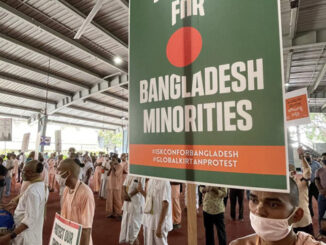
The 79th session of the United Nations General Assembly (UNGA) is set to convene on September 10, 2024, at a time when the Israeli-Palestinian conflict remains one of the most pressing international concerns. This ongoing conflict has cast a long shadow over the Middle East for decades, and now, in 2024, it is yet again a focal point of global diplomatic discourse. While the world grapples with numerous other challenges, from climate change to nuclear proliferation, the Israeli-Palestinian conflict continues to stand out due to its longevity, complexity, and the scale of human suffering involved.
The conflict, which has spanned over a century, has evolved through various phases, with efforts at peace frequently derailed by renewed hostilities. As we approach the 31st anniversary of the historic agreement between Israel and the Palestine Liberation Organization (PLO) on September 13, 1993, it is disheartening to observe how little progress has been made toward lasting peace. At that time, the world witnessed a landmark moment, as Israel and the PLO recognized each other’s right to exist. This event symbolized a new hope for an eventual resolution to the conflict, which had deeply divided Arabs and Jews in the Middle East for generations. However, three decades later, that promise of peace remains unfulfilled, with both sides locked in an increasingly destructive and violent cycle.
The human toll of the Israeli-Palestinian conflict is staggering. In the past few years, particularly since the escalation of hostilities in 2021, the situation has deteriorated further, with a dramatic rise in civilian casualties, particularly in Gaza, where the population lives under severe blockade conditions imposed by Israel. The world has increasingly taken note of the suffering of the Palestinian people, with many human rights organizations and international observers raising concerns about what they describe as disproportionate and excessive use of force by Israel.
The 2024 conflict between Israel and Hamas in Gaza has drawn renewed attention to the humanitarian crisis in the region. Israeli airstrikes have devastated entire neighborhoods in Gaza, leaving thousands of Palestinians dead, including women and children. The United Nations Office for the Coordination of Humanitarian Affairs (OCHA) has documented severe shortages of food, water, and medical supplies in Gaza, which is home to over two million people, many of whom live in refugee camps. The blockade has been in place for over 16 years, creating what the UN has described as an “open-air prison,” where basic human rights are routinely violated.
As the 79th session of the UNGA approaches, the world waits anxiously to see if the assembly can finally play a pivotal role in finding a lasting solution to this painful and repetitive conflict. For decades, various peace plans, initiatives, and international interventions have sought to broker a resolution, but the conflict persists, leaving devastation in its wake.
The diplomacy of nations is on trial, as leaders from across the globe convene to address this enduring crisis. The UNGA, as the foremost forum for international diplomacy, has the opportunity to reignite peace talks and push for a comprehensive resolution. However, achieving consensus among member states, particularly those with vested interests in the region, will be a monumental challenge. The world is watching to see if, after decades of failure, the 79th session can chart a new course that might finally bring justice, peace, and dignity to both Israelis and Palestinians.
For now, the question remains: Will the UNGA rise to the occasion, or will the world continue to witness the cycle of violence, destruction, and despair? Time will tell, but the stakes could not be higher.





Be the first to comment